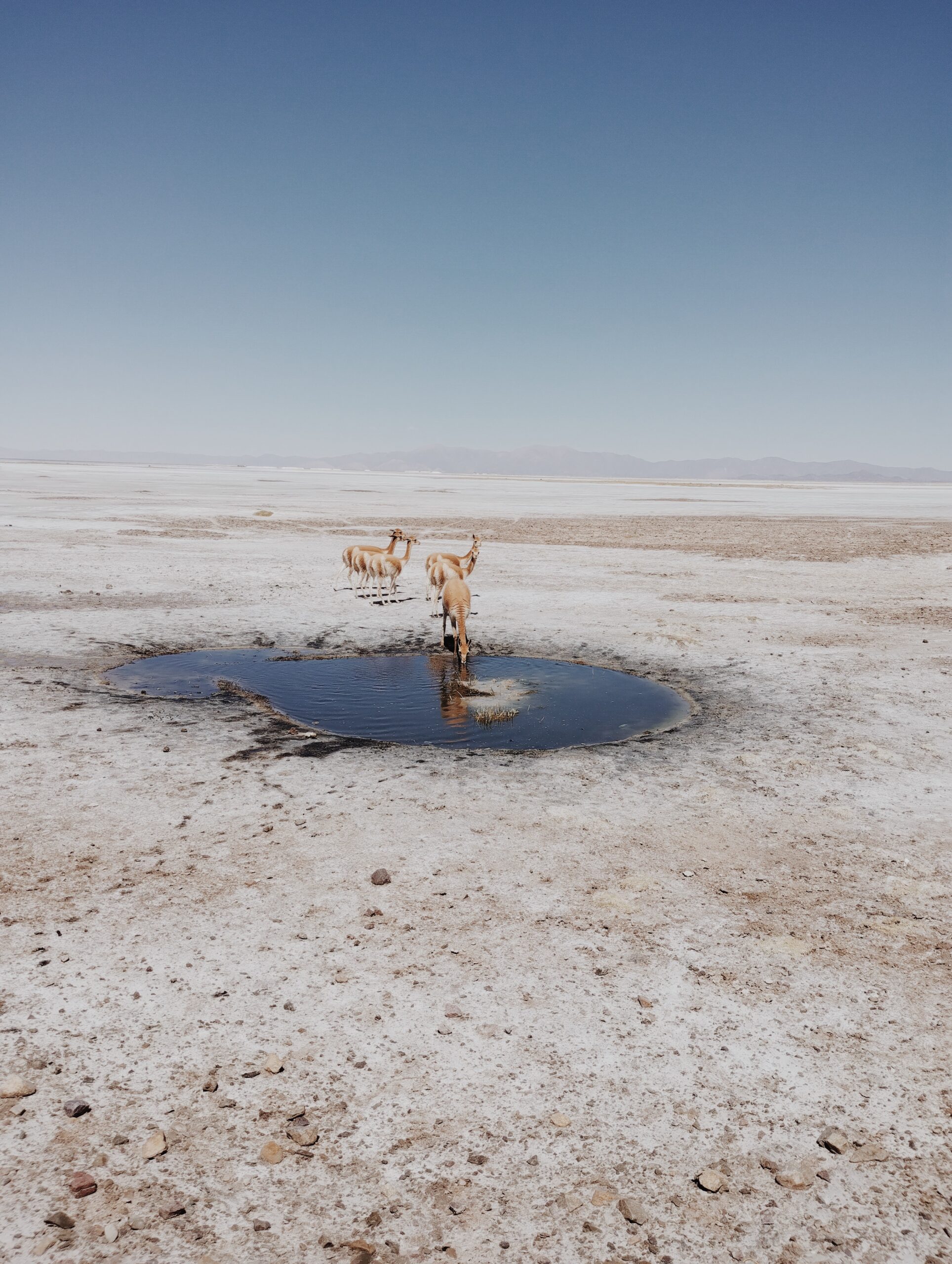In response to the global call to expand renewable energies, the extraction of lithium and other transition minerals is being promoted across multiple global fora as one of the main solutions to the climate crisis. At a time when these minerals have also gained strategic geopolitical importance, for the digitization, security and defense technologies, Argentina has become an important supplier of energy transition minerals, particularly lithium.
The increase in global demand for these minerals is a significant incentive for the government to promote investments in this sector: in 2024 Argentina a special regime was created to attract investment to the sector, adding benefits to the existing pro-investment regime created in the 1990s. However, for the past 15 years, this industry has brought about severe human rights violations and disregarded environmental protection laws in the country.
Overview: Reserves and projects
Argentina has proven reserves of 17.1 million tonnes of copper, 18.6 million tonnes of LCE (lithium carbonate equivalent), and also yet to be explored, rare earths.
Argentina, together with Chile and Bolivia, holds around 53 percent of the world’s lithium reserves in the unique ecosystems of Andean Wetlands (an area also called the “Lithium Triangle”). Argentina is offering fiscal incentives for investments in the sector. It has thus become the 5th lithium producer worldwide, with 71,000 tonnes in 2024.
Where are these projects located?
In Argentina, most lithium projects are concentrated in the Northwest, close to the border with Bolivia and Chile, in a unique ecosystem shared by all three countries: Andean wetlands.
These ecosystems play a crucial role in maintaining ecological balance and supporting local livelihoods. They host a unique biological diversity of flora and fauna, provide essential contributions for both biodiversity and people, such as water regulation, nutrient cycling, and carbon sequestration.
At the same time, they sustain traditional practices of indigenous communities who rely on these wetlands for grazing, medicinal plants, and cultural heritage. Protecting and managing these wetlands is crucial for environmental conservation and preserving the social and economic resilience of communities that have inhabited them for centuries.
Governance and legal framework
Argentina is a federal country composed of 23 provinces and one federal district. While the Federal Mining Code establishes procedures and conditions for mining permits, and federal laws determine environmental minimum standards, provinces hold ownership over natural resources. They are responsible for approving mining permits, conducting environmental impact assessments and monitoring compliance, but they should comply with the standards set by the federal government. The country has ratified international instruments protecting Indigenous, human and environmental rights, including the ILO 169 and the Escazú Agreement, which take legal precedence over the Federal Mining Law.
To attract foreign investments, Argentina passed the Mining Investment Law N°24.196 in 1993 offering fiscal, tax and custom benefits. Under President Javier Milei’s administration, the Large Investment Incentive Regime (RIGI) deepened this model making it extensive to industries such as fossil fuels, providing regulatory and fiscal stability for 30 years, limiting the State’s ability to impose or strengthen environmental and tax standards. This regime prioritizes water and energy use for mining over community needs.
The coexistence of contradictory norms and standards, coupled with weak implementation and enforcement of environmental regulations and the systematic breach of human rights such as the right to self determination, participation and the right to free prior and informed consent, has triggered socioenvironmental conflicts across Argentina. Many of them have been taken to local, national and international courts.
Socioenvironmental conflicts at a glance
Province of Catamarca – Salar del Hombre Muerto
In Catamarca’s Hombre Muerto Salt Flat, more than 10 lithium mining projects are operating at various stages without a cumulative and comprehensive environmental impact assessment in place. The Fenix Lithium project -operating for more than 25 years formerly by FMC Corporation, Livent and currently Rio Tinto- has already caused the drying of around 5 km of the Trapiche river, an important freshwater source for local indigenous communities, their livestock and surrounding ecosystems.
Despite the precedent, Rio Tinto’s Sal de Vida project and four additional lithium projects aim to extract freshwater from the Los Patos River sub-basin, threatening to replicate the same environmental damage. In response, the local indigenous community filed an environmental injunction to safeguard their limited water supply, which was upheld by the Catamarca Court of Justice in 2024.
Provinces of Salta and Jujuy – Salinas Grandes and Laguna de Guayatayoc
In the Salinas Grandes and Laguna de Guayatayoc basin -shared between the provinces of Jujuy and Salta-, lithium projects are advancing at the expense of human rights and fragile wetland ecosystems. The communities that inhabit the basin rely on small-scale salt production, livestock, subsistence agriculture and tourism -all or which are under threat by the lithium boom.
In 2015, over 30 indigenous communities developed the Kachi Yupi protocol, which establishes how they must be consulted to ensure a culturally appropriate respect for their right to Free, Prior, and Informed Consent (FPIC). Yet exploration has proceeded in their territory without respecting this protocol or international human rights standards. As a result, the communities have brought legal actions before provincial, national, and international bodies, including the Supreme Court
of Argentina and the Inter-American Commission on Human Rights, demanding a hydrogeological baseline, coordinated basin management, and proper consultation in order to avoid irreversible damage on the environment that sustains their lives.
In 2023, the government of Jujuy reformed its provincial Constitution and issued a decree modifying the existing environmental impact assessment of mining activities in a regressive manner: enabling procedures to advance without proper consultation and public participation processes. These changes have shifted the responsibility for consultation to the mining companies themselves, undermining State oversight and placing communities in a position of extreme vulnerability. The result: escalating rights violations, environmental risks, and social conflict in one of Argentina’s most sensitive ecosystems.
